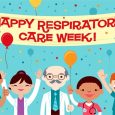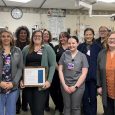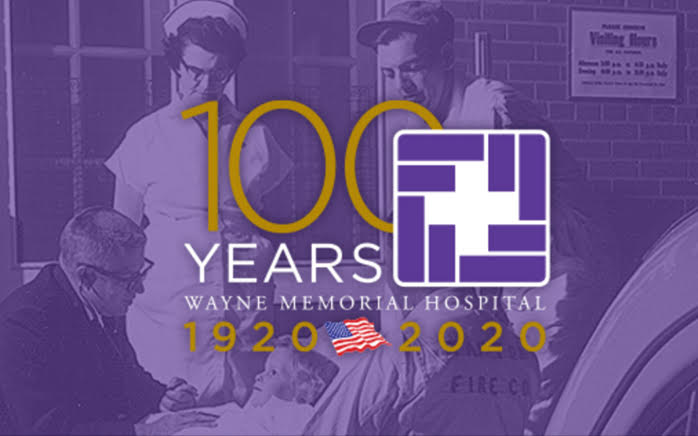
Novel Coronavirus (COVID-19)
Learn about novel coronavirus (COVID-19), our preparedness and updated policies to protect our community, patients, and staff. Learn more here.

Learn about novel coronavirus (COVID-19), our preparedness and updated policies to protect our community, patients, and staff. Learn more here.

Home / COVID-19 (novel coronavirus)
Emergency
570-253-8141
Patient Room:
570-253-8609
When prompted enter 3-digit room number
Human Resources
570-253-8995
Wayne Memorial Hospital
601 Park Street
Honesdale, PA 18431
Click the map below for turn by turn directions.





Wayne Memorial Hospital and Wayne Memorial Community Health Centers is committed to keeping you informed and bringing you the most up-to-date, reliable information about COVID-19.
We are doing all we can to protect you, our patients and visitors – and, ultimately, the community in which we live.
Please visit this page for the most up to date information.
COVID - Infusion Clinic info for PROVIDERS
Wayne Memorial Community Health Centers is offering Antibody Infusion Clinics for COVID-19 Treatment at the Stourbridge Professional Complex, 600 Maple Avenue, Suite 4. Providers are asked to review, complete and share the documents below with patients they wish to refer.
Bebtelovimab Physician Order Sheet
Bebtelovimab Health Care Provider Fact Sheet
Bebtelovimab Patient Fact Sheet
Bebtelovimab Informed Consent (3)
Standing order for management of reaction to Monoclonal antibodies
Schedule a COVID Vaccine with WMCHC
NEW as of 10/25/2021: Wayne Memorial Community Health Centers is offering BOTH third doses (full doses for immune-compromised) and booster shots (half doses for a much larger group of individuals). For specific information, click this link SCHEDULE A COVID VACCINE - Wayne Memorial Hospital (wmh.org)
First and second doses of the Moderna and Pfizer BioNTech vaccines are also offered.
Individuals do not need to be a patient of WMCHC to receive vaccines.
Bring your insurance card with you. There is no out-of-pocket cost. However, an administration fee will be covered by insurance without co-pay or deductible. The cost for uninsured patients is covered by the federal government.
If you have have a question regarding your vaccine, please call the COVID VACCINE HOTLINE at 570-253-8197 or email covidvaccine@wmh.org
COVID-19 Vaccine Information / FAQ – April 2021
The Pfizer/BioNTech vaccine gained full approval from the FDA on August 23, 2021... for individual age 16 and older. The Pfizer vaccine for adolescents, 12 - 15, is still under emergency use.
The Moderna vaccine and Johnson & Johnson’s Janssen vaccine* have been approved for emergency use against COVID-19 by the Food and Drug Administration (FDA).
Pfizer -- two injections, 21 days apart -- adults 16 and older, adolescents 12-15
Moderna -- two injections, 28 days apart -- adults 18 and older
Johnson & Johnson -- one injection ---------------------- adults 18 and older (*Administration of this vaccine was temporarily paused on April 13, 2021 and reinstated the evening of April 23, 2021)
For the two-dose vaccines, it is recommended that you take both doses from the same company.
NOTE: THIRD DOSE OR BOOSTERS: THE CDC recommends that people with moderately to severely compromised immune systems receive an additional dose of mRNA COVID-19 vaccine at least 28 days after a second dose of Pfizer-BioNTech COVID-19 vaccine or Moderna COVID-19 vaccine.
What are the COVID vaccines and are they effective?
Are the new COVID vaccines safe?
The U.S. vaccine safety system ensures that all vaccines are as safe as possible, according to the CDC. In the case of the COVID vaccines from Pfizer and Moderna, no scientific steps were skipped. The approval process was sped up, but no corners were cut.
It should also be noted that mRNA is manufactured by chemical rather than biological synthesis, so it is much quicker than conventional vaccines to be redesigned, scaled up and mass-produced.
The J&J approach was a more established route, but clinical trials were followed. One shot proved effective in studies, but J&J has another study underway to test a two-dose regimen.
The Pfizer, Moderna and Johnson & Johnson vaccines do not contain live virus. They cannot give you COVID.
Are there any side effects?
Side effects for all three vaccines are generally mild and temporary and may include pain at the injection site, headache, fever, fatigue, chills and muscle and joint pain. Some people report increased side effects with the second doses of Pfizer or Moderna, but these are, again, temporary. Note: the side effects are very similar to those reported with the annual flu shot on the CDC website.
There is a remote chance of an allergic reaction, which usually occurs within a few minutes to one hour after receiving a dose. If you are allergic to any of the ingredients, you should not take the vaccine. (The ingredients are listed below.)
Does the vaccine make me immune to COVID?
The vaccines are designed to prevent you from getting COVID, but timing is critical. It takes a few days for the body to make antibodies, and you could be vulnerable to contracting the disease in between your first and second dose.
It is not known yet how long the vaccine confers immunity--- it could be months, it could be years. All the vaccine manufacturers are continuing to study this.
If I get the COVID vaccine, can I still contract and transmit the disease to someone else?
Getting the vaccine is expected to confer some immunity upon the recipient but it is not known how much and whether the recipient can transmit the disease. Asymptomatic transmission may still be possible. Recent studies point to a reduced transmission rate, but they are not conclusive.
If I already had COVID, should I get vaccinated?
Yes. The CDC believes a vaccine will still be beneficial as it is not known how long a person’s immunity from the disease lasts. You could be re-infected, and the vaccine may help prevent that.
Who should NOT get the vaccine?
You should not get a vaccine if you
Ingredients in the Pfizer/BioNtech vaccine: mRNA, lipids ((4-hydroxybutyl)azanediyl)bis(hexane-6,1-diyl)bis(2-hexyldecanoate), 2 [(polyethylene glycol)-2000]-N,N-ditetradecylacetamide, 1,2-Distearoyl-sn-glycero-3- phosphocholine, and cholesterol), potassium chloride, monobasic potassium phosphate, sodium chloride, dibasic sodium phosphate dihydrate, and sucrose.
Ingredients in the Moderna vaccine: mRNA; Lipids (SM-102, 1,2-dimyristoyl-rac-glycero3-methoxypolyethylene glycol-2000 [PEG2000-DMG], cholesterol, and 1,2-distearoyl-snglycero-3-phosphocholine [DSPC]);tromethamine; tromethamine hydrochloride; acetic acid; sodium acetate; sucrose
Ingredients in the Johnson & Johnson vaccine: recombinant, replication-incompetent adenovirus type 26 expressing the SARS-CoV-2 spike protein, citric acid monohydrate, trisodium citrate dihydrate, ethanol, 2-hydroxypropyl-β-cyclodextrin (HBCD), polysorbate-80, sodium chloride.
Can I get a vaccine if I’m pregnant?
None of the original clinical trials involved pregnant women, so it’s recommended that you discuss the vaccine with your healthcare provider. However, the American College of Obstetricians & Gynecologists (ACOG) recommends that COVID-19 vaccines should not be withheld from pregnant individuals and COVID-19 vaccines should be offered to lactating individuals similar to non-lactating individuals.
Tell your vaccination provider about ANY medical conditions you might have, including:
Will the COVID vaccine have to be given every year like the flu vaccine?
Several mutations have already occurred, but so far the current vaccines appear to be effective against them. Still, the possibility of a new yearly vaccine—or even a booster— is not entirely off the radar.
Is the vaccine recorded anywhere?
The vaccination provider may include your vaccination information in your state/local jurisdiction’s Immunization Information System (IIS) or other designated system. This will ensure that you receive the same vaccine when you return for the second dose.
Primary sources: CDC, NIH, FDA, Pfizer, Moderna, Johnson & Johnson, Johns Hopkins. See: Facts about COVID-19 Vaccines (cdc.gov)
February 2021
Are there side effects with the second dose of the Moderna or Pfizer-BioNTech COVID-19 vaccines? MORE about vaccines, click here FAQs - Dose #2 & More Vaccine Questions
The CDC reports that people with COVID-19 have can experience symptoms ranging from mild symptoms to severe illness. These symptoms may appear 2-14 days after exposure:
But having one or more of these symptoms does not necessarily mean you have the illness. It is often difficult to tell the difference between COVID-19 and other illnesses, such as the flu.
When to seek care
If you are experiencing the above symptoms (fever, cough or difficulty breathing) and you have traveled to an affected area or have been in close contact with an individual that has traveled to an impacted area, and you think you need to be tested for COVID-19, please call your health care provider before visiting their office.
Please know that Wayne Memorial Hospital and Wayne Memorial Community Health Centers are doing all they can to protect you, our patients and visitors– and, ultimately, the community in which we live. The hospital has launched its Incident Command, which is a federal incident management plan that helps coordinate all activities related to, in this case, the exposure, diagnosis (testing) and treatment of novel coronavirus or COVID-19. Symptoms of the disease include fever, cough, sore throat and shortness of breath.
Wayne Memorial Community Health Centers’ access policies are similar: they are screening patients for COVID exposure and asking everyone to be masked. Both WMH and WMCHC are following CDC guidelines. WMCHC now offering tele-health. To learn more click here.
The hospital has designated a specific unit for patients who test positive for COVID-19. Negative air pressure rooms and ICRA walls (infection control barriers) have been installed to maintain control of this area.
Nursing staff has been trained on Personal Protection Equipment (PPE) and how to work in the isolation unit to avoid exposure to COVID-19 patients.
Support groups which meet in the hospital have been cancelled (Parkinson’s, Stroke, Alanon, etc). If you need information about them, contact Community Health at 570-253-8100 ext 8990. Check the wmh.org website often for reinstatement of these support groups.
Wayne Memorial Hospital COVID-19 Testing
PCR (polymerase chain reaction) COVID-19 testing is performed at Wayne Memorial Hospital. A prescription is required. Orders may be faxed to 570-253-8209. Test is a nose OR THROAT swab and results are returned in two to seven days. For more information about testing, including state sites for testing, visit pa.gov.
If you need proof to show your employer that you are cleared of COVID-19 to go back to work, “The COVID diagnostic test is the one you need,” says Sibyl Rickard, MD, director Anatomic and Clinical Laboratories at Wayne Memorial Hospital, “not the antibody test.”
Dr. Rickard explains that the serology or antibody tests available right now offer up too many “false positives” and too much cross-reactivity with other common corona viruses. Antibody tests check a person’s blood for antibodies produced by an infected person to fight the disease. They show that a person has had an infection, but they may not show if the person is currently infected. That’s because the antibodies—bits of protein called immunoglobulins – go through several conversions in the body. The types of immunoglobulins that show up may indicate the host person is still in the early stages of the infection or the middle stage or over the infection.
In short, a negative test early in the disease does not exclude infection. A person could still be very much infected. Even if the test was very accurate, Dr. Rickard says it’s still hard to interpret because COVID-19 is so new.
“It can take two to three weeks for full conversion,” says Dr. Rickard, “but—and this is a big but-- the relationship with immunity is still unclear.”
“There is a perceived rush to give people ‘immunity passports’ based on these antibody tests,” says Dr. Rickard, “and I do not want to give anyone a false sense of security. It is inappropriate to make individual decisions based solely on these results.”
Since COVID-19 is a virus, most experts agree that like most viruses, its antibodies probably give a person some immunity from being infected again; however so much is unknown about this disease.
So why the push for these antibody tests? “They do give us a picture of how widespread the virus might be in a community,” says Dr. Rickard, “which can help us assess every step forward—medically, socially and economically.”
Dr. Rickard also points out that all serology testing at this time, including point of care testing, must be performed in CLIA-certified labs approved to run moderate to high complexity testing. The community should be suspicious of any testing performed outside of a laboratory setting.
Meanwhile, she reiterates, the best test remains the COVID-19 molecular test, also known as the PCR (polymerase chain reaction) test. This diagnostic test finds the virus that causes COVID-19 in samples taken from your respiratory system, such as swabs of the inside of your nose. Some tests are point-of-care tests, meaning results may be available at the testing site in less than an hour. Other tests must be sent to a laboratory to analyze, a process that may take a few days.
Wayne Memorial Hospital uses its in-house lab, as well as a commercial lab, Lab Corps, and the state health laboratory.
Unfortunately, the COVID diagnostic test is still not available to everyone. A person must show serious symptoms or a history of exposure or travel to an outbreak area. A prescription is required to get the test.
“Every day we get in more testing materials,” says Dr. Rickard, “so hopefully we will be able to expand testing soon.”
For more information about testing, click here. .
“The quality of our tests is excellent,” said Sibyl Rickard, MD, chief pathologist at Wayne Memorial Hospital. She noted that early on, COVID tests were much less accurate, but today “the sensitivity of the assay is 99%, meaning only one in 100 might be inconclusive. Ninety-nine are conclusive.”
Not everyone can be tested yet, however. There is still a shortage of testing materials such as the viral transport media and the type of swabs used to collect specimens.
“The criteria for testing remains strict,” Dr. Rickard explained, “because of the limited number of testing kits.”
Tests are prioritized for those who need them the most: hospitalized patients, potentially exposed healthcare workers and certain people with symptoms. “It is critical to test our hospitalized or admitted patients,” said James Pettinato, RN, director WMH Patient Care services, “so their treatment is not only appropriate for them but also to limit exposure to other patients in the hospital.”
The hospital has tested between 300 and 400 individuals since early March. A handful have been called back to re-test, mostly because the quantity of the specific cells needed from the patient when swabbed was insufficient. “Sometimes this is due to excess secretions hindering a successful extraction,” said Dr. Rickard. “It is not because the test itself is faulty.”
Wayne Memorial currently uses three labs for testing, including its own laboratory in the hospital, the commercial company, Lab Corp, and the state health department laboratory near Philadelphia.
Laboratory Services Manager John Romano said that in addition to improved testing accuracy, results are coming back faster than they were when testing started.
“A patient still needs a prescription from his or her healthcare provider for a test,” said Romano, “but once we have that in hand, we can turn around the results fairly quickly.” For example, he said, Lab Corp results are now coming back in about three days, compared to five- to-seven days just a week ago.
For more information, visit wmh.org/covid-19-novel-
Due to the COVID pandemic and a concern for safety and reducing the potential for exposure, WMH is allowing a limited number of visitors with some restrictions.
Most WMH services are open. However, some ab sites/blood draw are temporarily closed due to staff re-allocation. Please visit this page for updates, Lab/Blood Draw Sites .
Wayne Memorial Hospital recognizes the importance of visitors in a patient’s healing process. However, in view of increased COVID-19 cases in our region, it is imperative that we reduce the potential for any exposure to our patients, visitors and staff.
UPDATED Visitor Information
Hospital Inpatients
Visitors are allowed in these circumstances effective January 17, 2022.
Note: Main Entrance closes at 4pm. Please use Emergency Department entrance after 4pm.
VISITING HOURS 9AM – 6PM
COVID unit – Visitors must be able to wear PPE (Personal Protective Equipment)
Special circumstances may affect visitor COVID unit guidelines. WMH recommends visitors be vaccinated due to high-risk potential for exposure in the unit.
No visitors are allowed in these areas
All visitors must follow these guidelines for infection control
Pre-screening of all patients and visitors, including temperature checking will be conducted upon entering.
ALL VISITORS MUST WEAR A MASK TO ENTER THE HOSPITAL. If you do not have a mask, a cloth one will be provided. Pre-screening includes questions about possible exposure to COVID-19 patients or travel to an area affected by an outbreak.
As of April 3, 2020, all staff are required to wear a mask to help stop spread of the virus. Read more here.
The CDC recommends the following if you have possible or confirmed COVID-19:
for more information visit: cdc.gov/coronavirus
Wayne Memorial collaborated with area schools on a video to educate, communicate and stress flexibility. The video COVID & SCHOOLS RE-OPENING is below. The video features Doctors Sean McVeigh, pulmonologist/COVID Task Force and James Cruse, Family Medicine/WMCHC Medical Director.
Watch this video for helpful information on staff precautions and guidelines
Phases & Businesses Life Sustaining Business Frequently Asked Questions: Click here.
What drugs are being used to treat COVID-19? Click here.
Contact Tracing – who is being contacted? Click here.
Who will be tested?
Testing is being done by the PA Department of Health and some private commercial labs such as LabCorp. Protocols are different (right now) for each, and Wayne Memorial Hospital, working in concert with our community health centers, has developed a Testing Guidelines sheet. At this point in time, viral transport “media” (testing kits) are in short supply and testing will not be done for the sole purpose of testing. Patients will be asked critical questions to determine their eligibility for available testing. This may change.
Questions? Visit cdc.gov/coronavirus or the PA Department of Health website for the latest information on the virus.
Thank you to all who are so supportive of our front-line staff during these difficult times!
Masks, Gowns, Shields & Other Goods
We are accepting cloth masks, N95s and surgical masks. Click here for cloth mask pattern.
Masks can be dropped off on the porch of Community Relations, 504 Park St., Honesdale, the white house across from the hospital. If you call us 570-253-8990/8422 and let us know you have left them in the box on the porch, we can be sure to pick them up.
Food
Please contact Joyce Malicky malicky@wmh.org or call her at 570-253-8737. for any food trays or goods you wish to give our staff. Your donations are much appreciated!
Helpful tip poster from the CDC: Stop-the-spread-of-germs, click here.

(Honesdale, November 22, 2024)…November 21st was recognized as National Rural Health Day throughout Wayne County. A proclamation issued by the Wayne County Commissioners encouraged everyone to recognize the unique healthcare... Read More

Honesdale, PA (November 19, 2024) — Salma Mustafa, MD, board certified Internal Medicine physician, joined Highland Physicians Family Health Center (HPFHC) in early September. Dr. Mustafa offers primary care to... Read More

(Honesdale, PA, October 31, 2024) — Congratulations to Wayne Memorial Community Health Centers (WMCHC) most recent graduates of the National Institute for Medical Assistant Advancement (NIMAA). Kim Anderson, Gracie... Read More
Alzheimer’s Support Group for people living with the disease and their care partners. First Tuesday of every month. Trained facilitators from the Alzheimer’s Association of Greater Pennsylvania. 5:30pm-6:30pm, Wayne Memorial... Read More
Alzheimer’s Support Group for people living with the disease and their care partners. First Tuesday of every month. Trained facilitators from the Alzheimer’s Association of Greater Pennsylvania. 5:30pm-6:30pm, Wayne Memorial... Read More

(Honesdale, November 22, 2024)…November 21st was recognized as National Rural Health Day throughout Wayne County. A proclamation issued by the Wayne County Commissioners encouraged everyone to recognize the unique healthcare... Read More

Honesdale, PA (November 19, 2024) — Salma Mustafa, MD, board certified Internal Medicine physician, joined Highland Physicians Family Health Center (HPFHC) in early September. Dr. Mustafa offers primary care to... Read More

(Honesdale, PA, October 31, 2024) — Congratulations to Wayne Memorial Community Health Centers (WMCHC) most recent graduates of the National Institute for Medical Assistant Advancement (NIMAA). Kim Anderson, Gracie... Read More

(Honesdale, October 24, 2024)…Wayne Memorial’s Hospice Department will host a fall memorial service on Sunday, November 3rd at 2:00 PM at Grace Episcopal Church in Honesdale to remember hospice patients... Read More

Honesdale, PA (October 24, 2024) — You could call it puppy love, but it’s so much more! According to UCLA Health (www.uclahealth.org), for most people, just the presence of an... Read More

(Honesdale, PA October 24, 2024)…As we observe Respiratory Care Week, we take a moment to recognize the vital role respiratory therapists play in our hospital and their importance to our... Read More

(Honesdale, PA. October 23, 2024)… It’s National Pharmacy Week, October 20 – 26, 2024, a time to recognize the powerful impact the pharmacy department has on our patients here at... Read More

Wayne Memorial Welcomes Dr. Thomas J. Allardyce: A New Chapter in Professional Orthopaedic Care Wayne Memorial Hospital is thrilled to announce the addition of Dr. Thomas J. Allardyce, a highly... Read More

(Honesdale, PA October 16, 2024).. Wayne Memorial Hospital has proudly received reaccreditation from the Pennsylvania Trauma Systems Foundation, reaffirming its status as a Level IV Trauma Center. This accreditation underscores... Read More
You’ll love the culture and camaraderie you don’t find at larger health systems. From nurses and management to techs and physicians, you’ll find your perfect career here


Do you have an experience with Wayne Memorial you'd like to share? Did a caregiver, treatment or procedure change your life? If so we want to hear from you. Share your story and inspire and motivate others.

From our humble beginnings in a small building on Court Street in Honesdale in 1920, to a thriving and growing state-of-the-art health system with offices in four counties and more than 1,000 employees, Wayne Memorial Hospital continues to be the driving force in health care in our community.
Wayne Memorial Hospital Auxiliary | SUPPORTING WMH FOR MORE THAN 75 YEARS - LEARN MORE!
SIGN UP TODAY TO RECEIVE FREE E-NEWS
Stay informed! Get the latest WMH news and updates sent to your inbox.